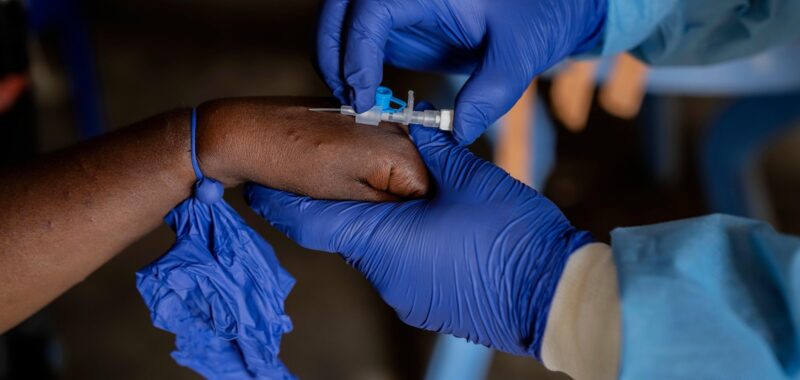GENEVA — The World Health Organization has authorized the first mpox vaccine for children, a decision experts hope will help make immunizations more widely available to one of the hardest-hit populations during the ongoing outbreaks of the disease in Congo and elsewhere in Africa.
In a statement late Tuesday, the U.N. health agency said it had approved the mpox vaccine made by Japanese company KM Biologics for use in children over 1 year of age as a single dose.
Earlier this month, the charity Save the Children said that cases among children younger than 18 had increased by more than 130% in Congo, noting there were now more than 25,000 suspect cases.
The charity said that children were almost four times more likely than adults to die from the newest form of mpox first detected in eastern Congo earlier this year. Mpox, related to smallpox, mostly causes symptoms including fever, rash, lesions and fatigue.
“Children are especially vulnerable to mpox,” Save The Children’s Dr. Katia Vieira de Moraes LaCasse said in a statement. “They explore by touch and taste, don’t always understand health guidance and have weaker immune systems than adults.”
Scientists have previously noted that mpox appears to be disproportionately affecting children in Congo and Burundi, which account for more than 90% of all mpox cases in Africa’s current outbreak.
WHO had previously approved the mpox vaccine made by Bavarian Nordic for people 18 and over, but said that the shot could be used in younger populations, if doctors thought the benefits might outweigh potential risks, given the lack of data in children and other groups including pregnant women.
Last week, WHO said cases of mpox in the Congolese region where the new, more infectious form was first identified appeared to be “ plateauing,” even as cases were rising elsewhere, including Burundi and Uganda.
So far, about 50,000 people in Congo have been immunized against mpox with the vaccine made by Bavarian Nordic.
WHO said Japan had announced it would donate about 3 million doses of the shot made by KM Biologics to Congo. It wasn’t clear whether any of the doses had arrived.
On Friday, WHO is convening its expert committee to determine whether the outbreaks in Congo and elsewhere in Africa is still a global emergency, a declaration that the U.N. agency first made in August.
To date, Africa has reported more than 46,000 suspected mpox cases in the current outbreak, including 1,081 deaths.
___
The Associated Press Health and Science Department receives support from the Howard Hughes Medical Institute’s Science and Educational Media Group. The AP is solely responsible for all content.
___
This story has been corrected to show that the Save the Children doctor’s last name is Vieira de Moraes LaCasse, not Veira de Moraaes Lecasse.

